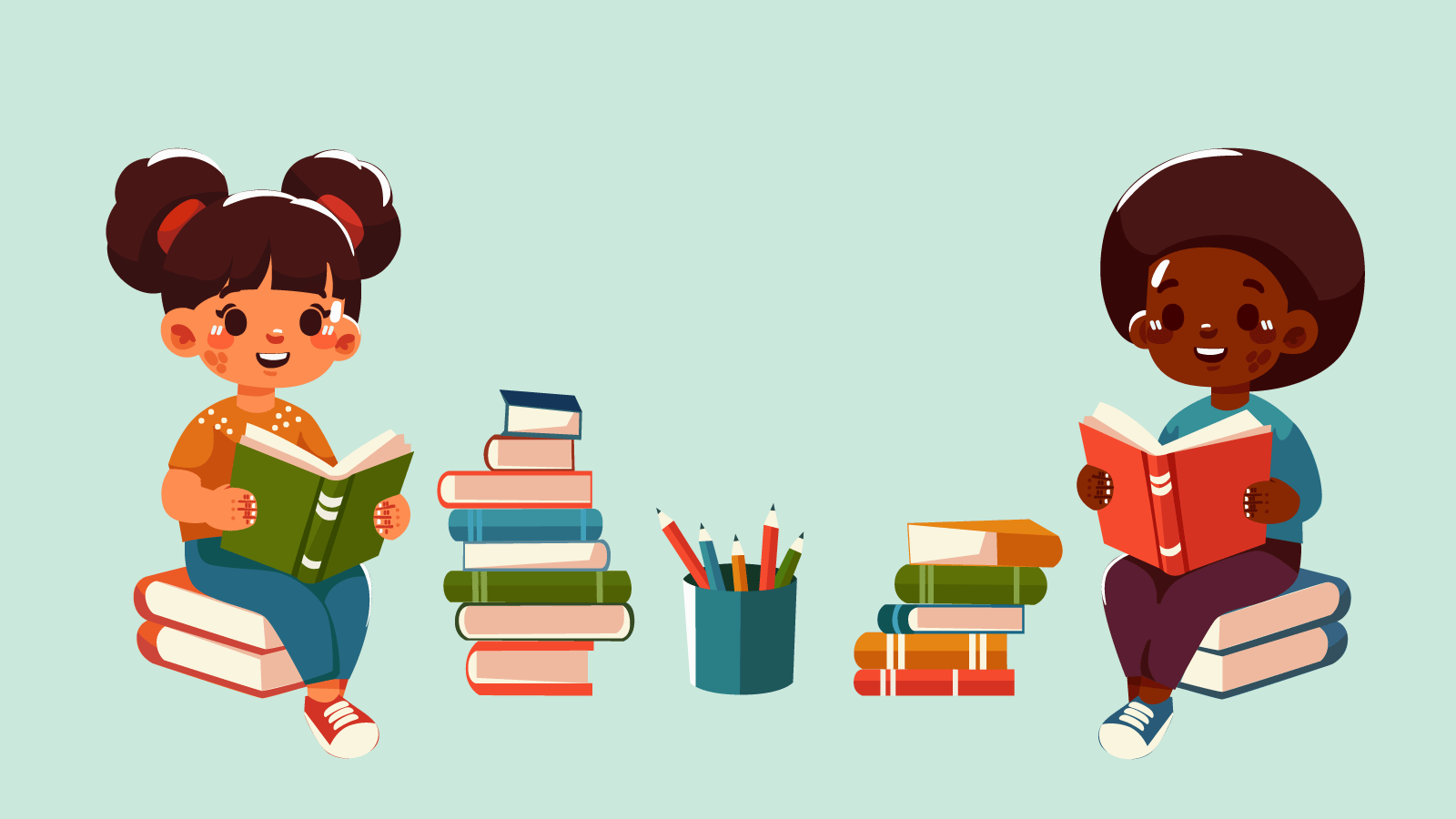Problem-Solving Skills Reading Comprehension Worksheets for Ages 7-8
6 filtered results
-
From - To
Enhance your child's critical thinking with our Problem-Solving Skills Reading Comprehension Worksheets, designed specifically for ages 7-8. These engaging worksheets encourage young learners to analyze information, identify issues, and derive solutions while improving their reading comprehension. Through exciting stories and relatable scenarios, children will practice their inference and deduction skills, fostering a deeper understanding of texts. Each worksheet is crafted to make learning enjoyable and interactive, ensuring that students not only grasp essential reading strategies but also develop essential problem-solving capabilities. Perfect for at-home learning or classroom activities, inspire your child’s love for reading while sharpening their cognitive skills!
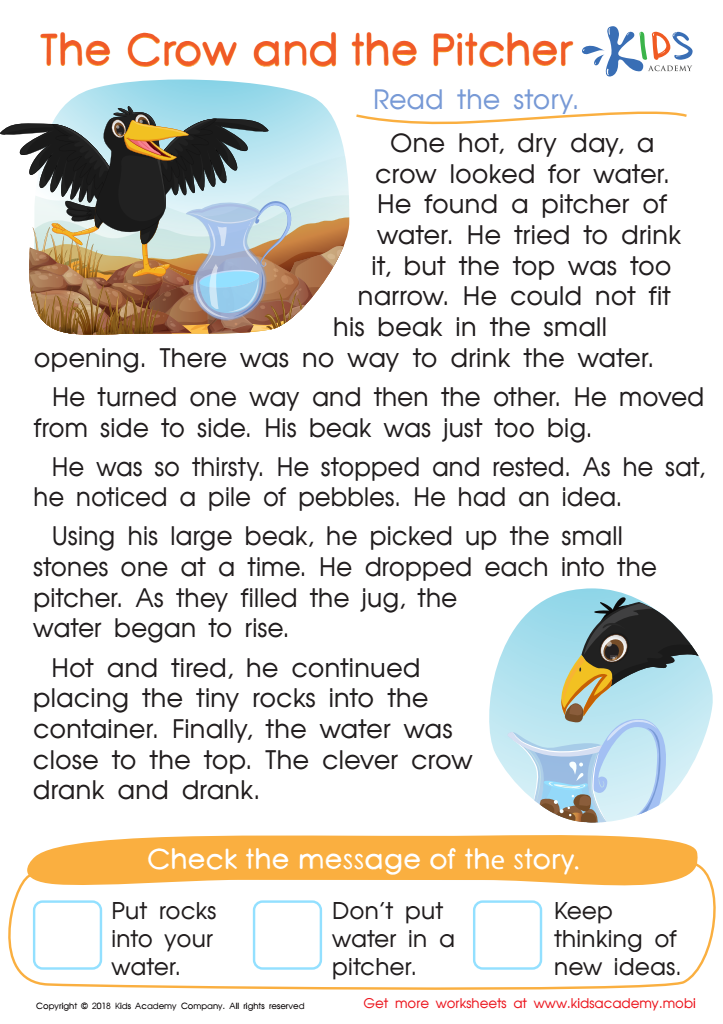

The Crow and the Pitcher Worksheet
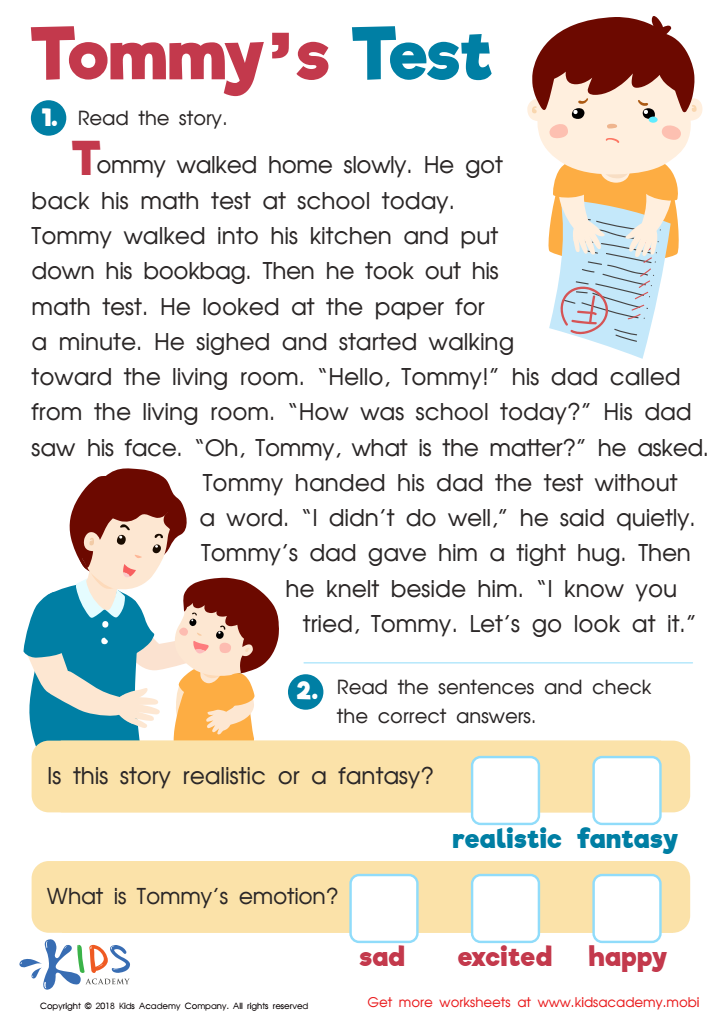

Tommys Test Worksheet
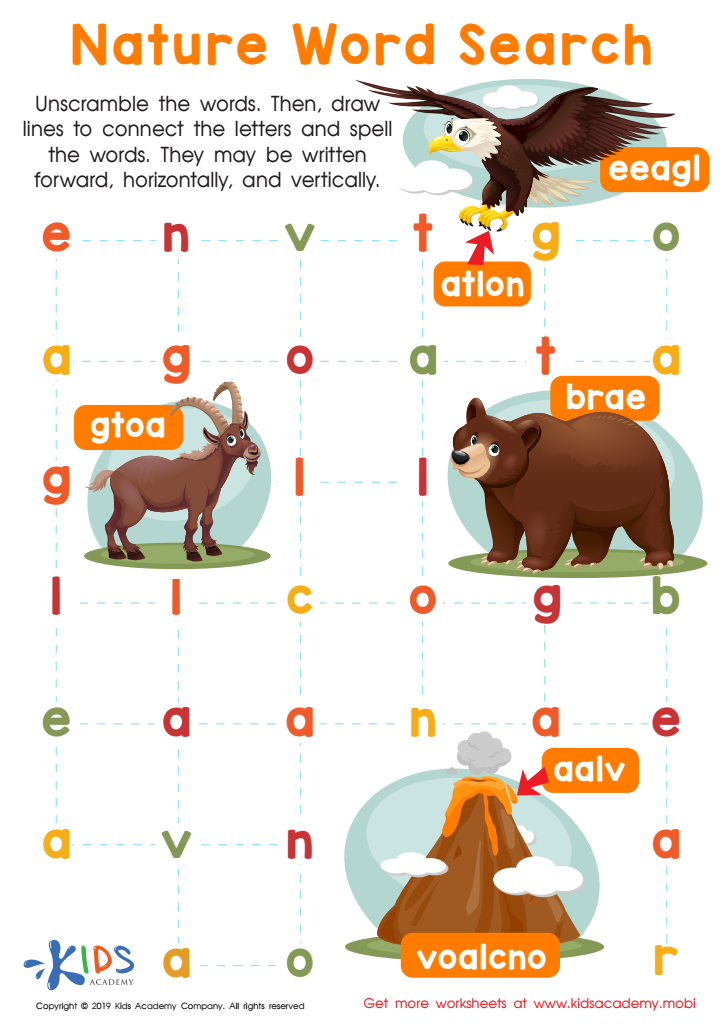

Nature Word Search Worksheet
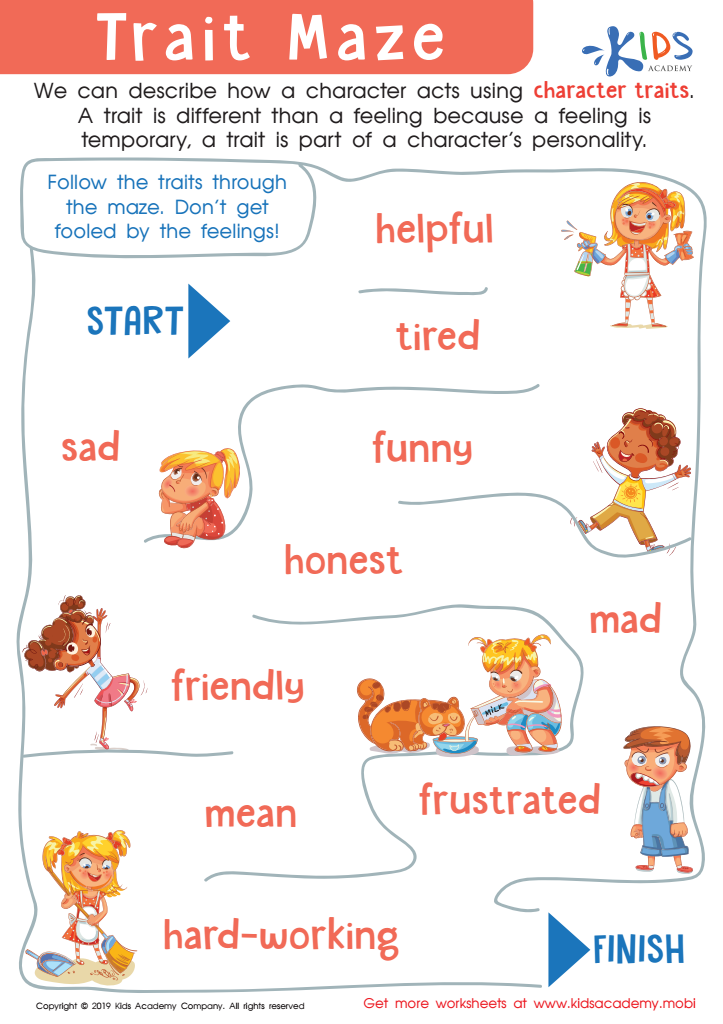

Trait Maze Worksheet
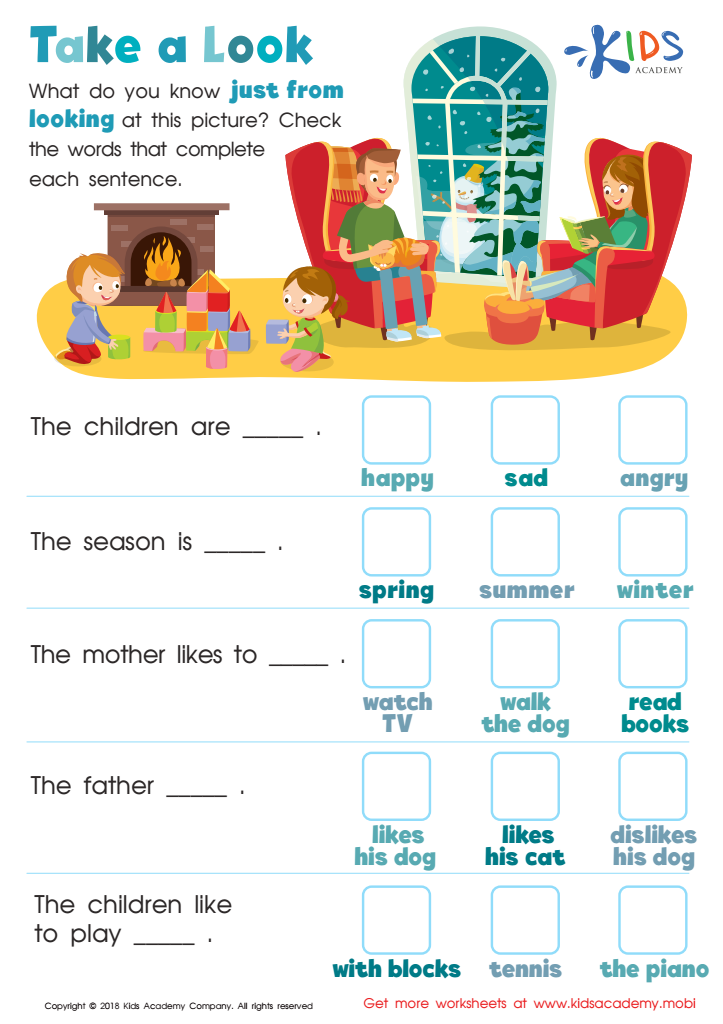

Take a Look - Part 1 Worksheet
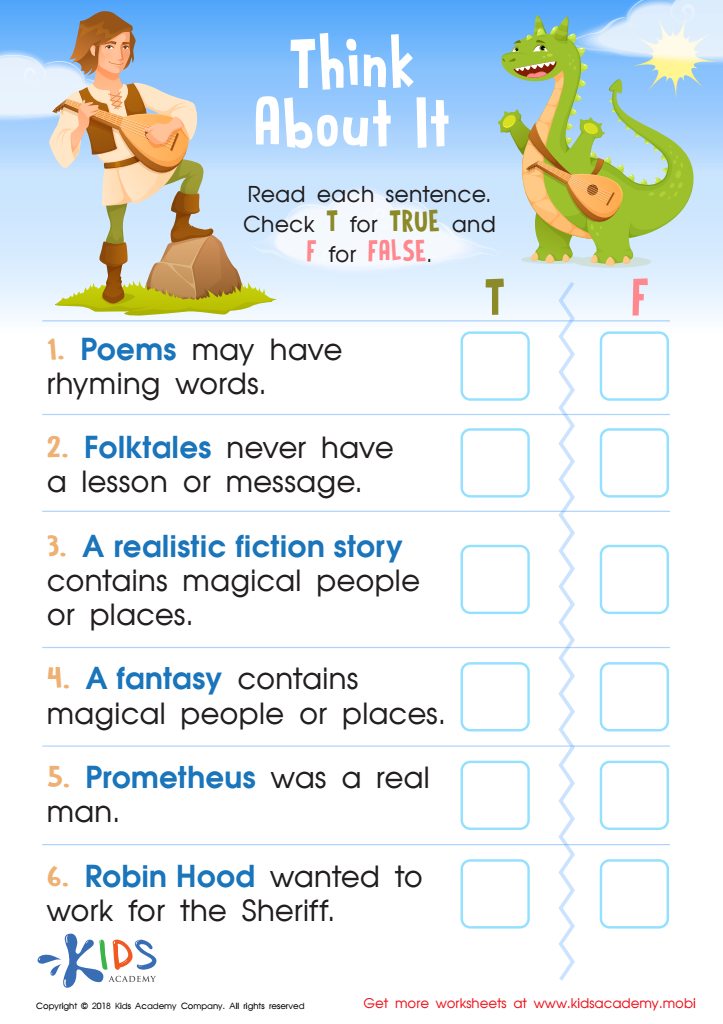

Think About It: Assessment Worksheet
Problem-solving skills are crucial for children aged 7-8, particularly in the context of reading comprehension. At this age, children are transitioning from learning to read to reading to learn. Strong problem-solving abilities empower them to decode complex texts, analyze information, and synthesize new ideas, which are essential skills for academic success.
Parents and teachers should care about developing these skills, as they directly affect a child's ability to comprehend and engage with diverse materials, whether it's a story, a textbook, or a written assignment. By fostering problem-solving skills, educators can help children understand relationships between characters, themes, and plots in literature, equipping them to ask questions and draw inferences.
Additionally, emphasis on problem-solving encourages children to think critically and independently, enhancing their overall cognitive abilities. This foundation not only aids in literacy but also prepares them for future challenges in math and science, where critical thinking and problem-solving are invaluable. Involved parents and educators can create supportive environments—whether through discussions, reading activities, or exploring various problem-solving strategies—that nurture these vital skills, ultimately fostering a love of reading and learning in children.
 Assign to My Students
Assign to My Students




